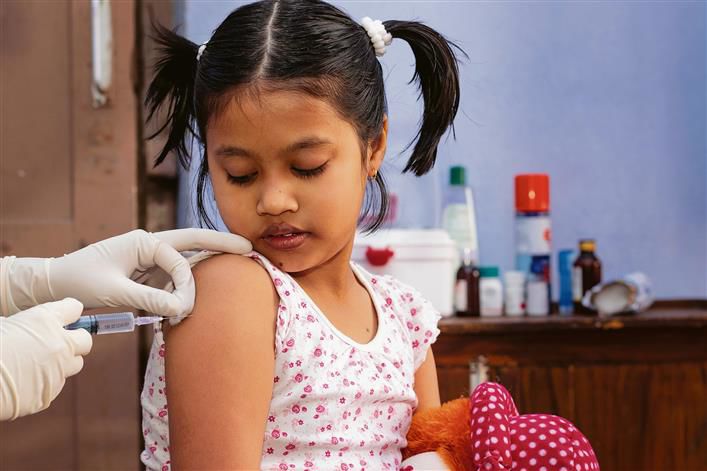A shield against cervical cancer
Yashbala
Long before philanthropist Sudha Murty called for a government-sponsored vaccination programme to combat cervical cancer, her Infosys Foundation had granted funds to the Cancer Institute (WIA), Chennai, for setting up of a cancer registry and screening project — the HPV vaccination programme.
As cervical cancer or cancer of the cervix (mouth of uterus) emerges as the second highest cause of cancer-related deaths in India, the Central government also intends to incorporate the Human Papilloma Virus (HPV) vaccine into the National Immunisation Programme soon. Starting at nine until 45 years of age, this vaccination, once incorporated, would be a regular part of a woman’s immunisation schedule.
According to the Indian Council of Medical Research National Cancer Registry Programme, there were 3.4 lakh cervical cancer cases in 2023. About 75,000 women die every year and many of the survivors have a miserable quality of life.
We are ‘fortunate’ that at least 80 per cent of cervical cancer cases are caused by a virus — HPV — and it can be controlled with a vaccine, so also the cancer. HPV’s oncogenic (causing tumours) prevention discovery had won a Nobel Prize (medicine) for Dr Z Hausen, and justifiably so.
The vaccine is being used effectively worldwide for prevention of cervical cancer. As many as 135 million doses have been administered in the US alone and the vaccination has emerged as a very safe and effective strategy to combat cervical cancer.
So strong has been my conviction about its safety that when the HPV vaccine became available in India in 2008-2009, I vaccinated my 13-year-old daughter first before I used it on anyone else.
Besides the vaccination, there are two other preventive interventions — visual inspection and Pap smear test, but these are not technically feasible, as India is a vast country with limited resources, a huge population size and too many diseases to be tackled. A preventive vaccine seems a much more effective solution.
Also, the HPV vaccine can not only prevent cervical cancer, but also many other cancers in both men and women. There are more than 100 strains of HPV viruses, some of which cause cancers and other diseases, including cancers of vulva, vagina, penis, rectum, oropharynx (back of the mouth and upper throat), warts, respiratory polyps (soft growth in the lining sinuses), etc. Hence, different types of vaccines are available which have efficacy against different strains of HPV which cause cancer.
For cervical cancer, the bivalent (against 2 strains) is effective enough as a preventative strategy. One, two or three doses are recommended for different sets of population. Nine to 12 years age group is the best target because of a stronger immune response and better efficacy before the first sexual exposure. After years of multi-centric studies the world over (with ongoing research), the WHO has come to the conclusion that even a single dose is a reasonable and effective intervention in low-resource settings, rather than no vaccine at all.
For children less than 15 years, it is only a two-dose schedule irrespective of resource settings. At present, the HPV vaccine is not mandatory in our universal vaccination programme but a recommendation is in place. The Central government is also considering providing the vaccine free of cost or at low cost.
State governments of Punjab, Sikkim, Karnataka, Tamil Nadu, Chhattisgarh and Maharashtra have also announced free HPV vaccination programmes for school girls in some districts as part of pilot projects.
Basic vaccination hesitancy, giving it to young girls before sexual activity and its high cost are major roadblocks. Other issues include maintaining a cold chain and reaching out to remote areas. But as cervical cancer cases rise every year, an effective and aggressive awareness campaign is a must to emphasise the safety and efficacy of the HPV vaccine, allay anxiety about it and use it to educate about other sexually-transmitted diseases and health issues in young adults in a sensitive and mature manner.
— The writer is director, obstetrics & gynaecology, Cloudnine, Panchkula









